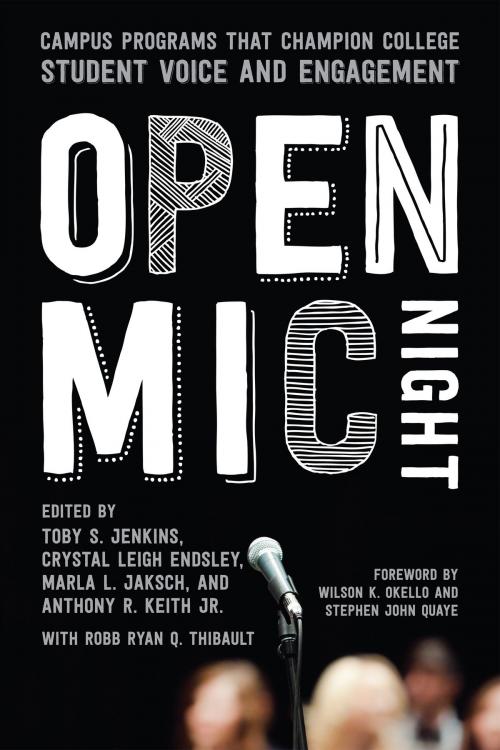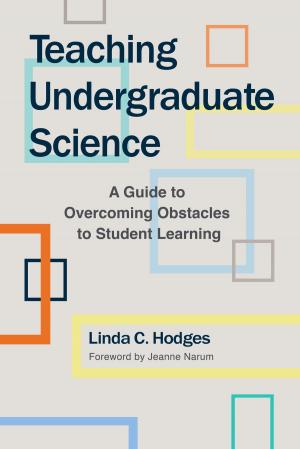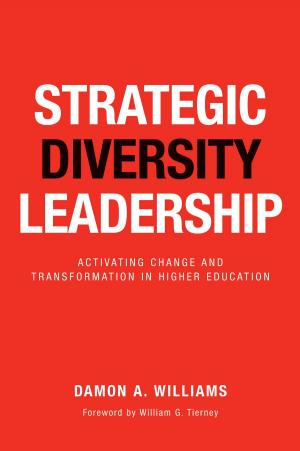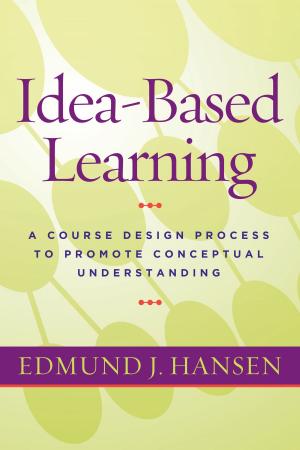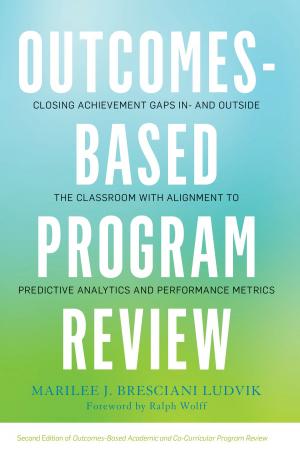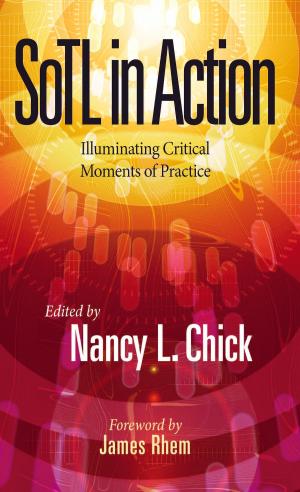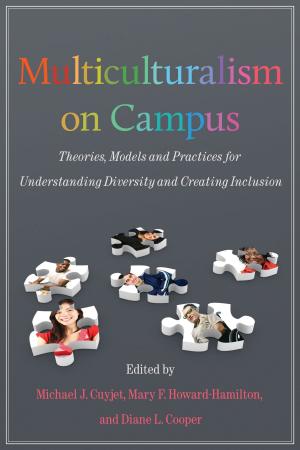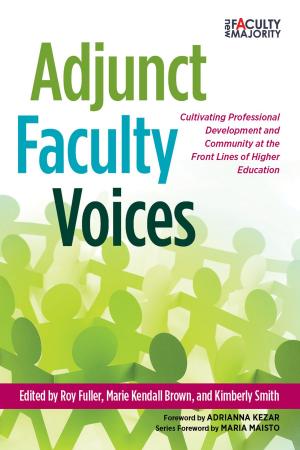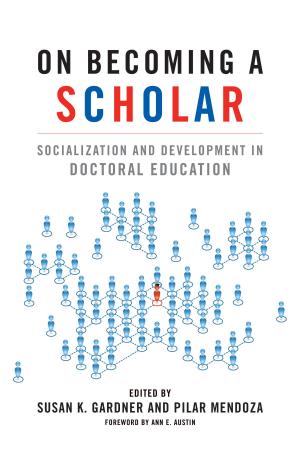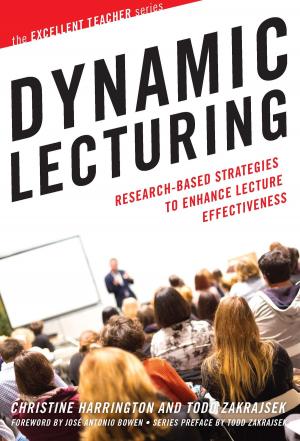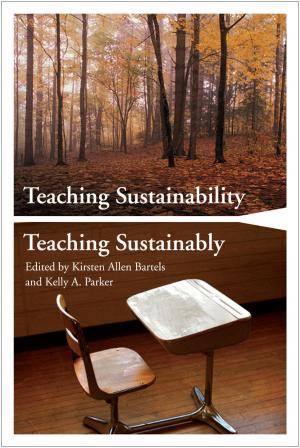Open Mic Night
Campus Programs That Champion College Student Voice and Engagement
Nonfiction, Reference & Language, Education & Teaching, Higher Education| Author: | ISBN: | 9781620365151 | |
| Publisher: | Stylus Publishing | Publication: | September 30, 2017 |
| Imprint: | Stylus Publishing | Language: | English |
| Author: | |
| ISBN: | 9781620365151 |
| Publisher: | Stylus Publishing |
| Publication: | September 30, 2017 |
| Imprint: | Stylus Publishing |
| Language: | English |
While campuses across the United States have been offering spoken word programs for over 20 years, little attention has been paid to their purpose and impact beyond their contribution to the campus social aesthetic.
There is an increasing understanding that performance poetry and spoken word is much more than entertainment. Within disciplines such as English, Ethnic, Women’s, and Cultural Studies, scholarship has identified spoken word’s role in developing political agency among young adults; its utility for promoting authentic youth voice; and its importance as a tool of cultural engagement.
This book – compiled by scholar artists, including internationally recognized spoken word performers – offers guidance to student affairs professionals on using spoken word as a tool for college student engagement, activism, and civic awareness. It makes the case that campus event spaces need to transcend their association with the theatre or art departments to provide a venue where students are allowed to be different and find opportunities for personal and intellectual development and civic engagement. Open mic nights offer college students a way to speak out, advocate, lead, educate, and explore with their peers.
This book presents a mix of critical essays and college student writing that explore themes of spoken word, student engagement, and campus inclusion and address these key topics:
• Spoken word as an educational, civic engagement, and personal development tool (particularly among traditionally marginalized communities)
• The links between spoken word and social activism (art as social action; art as a form of civic leadership)
• The importance of privileging student voice in student affairs programming (even when they yell; even when they’re angry)
• The challenges that come with engaging students in exploring intersecting concepts like race, gender, and class
• Considerations for creative and intentional spoken word programming (What does a creative program look like?)
• Scaling up for sustainability (through student affairs/academic affairs partnerships, study abroad collaborations, etc.)
There is an increasing understanding that performance poetry and spoken word is much more than entertainment. Within disciplines such as English, Ethnic, Women’s, and Cultural Studies, scholarship has identified spoken word’s role in developing political agency among young adults; its utility for promoting authentic youth voice; and its importance as a tool of cultural engagement.
This book – compiled by scholar artists, including internationally recognized spoken word performers – offers guidance to student affairs professionals on using spoken word as a tool for college student engagement, activism, and civic awareness. It makes the case that campus event spaces need to transcend their association with the theatre or art departments to provide a venue where students are allowed to be different and find opportunities for personal and intellectual development and civic engagement. Open mic nights offer college students a way to speak out, advocate, lead, educate, and explore with their peers.
This book presents a mix of critical essays and college student writing that explore themes of spoken word, student engagement, and campus inclusion and address these key topics:
• Spoken word as an educational, civic engagement, and personal development tool (particularly among traditionally marginalized communities)
• The links between spoken word and social activism (art as social action; art as a form of civic leadership)
• The importance of privileging student voice in student affairs programming (even when they yell; even when they’re angry)
• The challenges that come with engaging students in exploring intersecting concepts like race, gender, and class
• Considerations for creative and intentional spoken word programming (What does a creative program look like?)
• Scaling up for sustainability (through student affairs/academic affairs partnerships, study abroad collaborations, etc.)
While campuses across the United States have been offering spoken word programs for over 20 years, little attention has been paid to their purpose and impact beyond their contribution to the campus social aesthetic.
There is an increasing understanding that performance poetry and spoken word is much more than entertainment. Within disciplines such as English, Ethnic, Women’s, and Cultural Studies, scholarship has identified spoken word’s role in developing political agency among young adults; its utility for promoting authentic youth voice; and its importance as a tool of cultural engagement.
This book – compiled by scholar artists, including internationally recognized spoken word performers – offers guidance to student affairs professionals on using spoken word as a tool for college student engagement, activism, and civic awareness. It makes the case that campus event spaces need to transcend their association with the theatre or art departments to provide a venue where students are allowed to be different and find opportunities for personal and intellectual development and civic engagement. Open mic nights offer college students a way to speak out, advocate, lead, educate, and explore with their peers.
This book presents a mix of critical essays and college student writing that explore themes of spoken word, student engagement, and campus inclusion and address these key topics:
• Spoken word as an educational, civic engagement, and personal development tool (particularly among traditionally marginalized communities)
• The links between spoken word and social activism (art as social action; art as a form of civic leadership)
• The importance of privileging student voice in student affairs programming (even when they yell; even when they’re angry)
• The challenges that come with engaging students in exploring intersecting concepts like race, gender, and class
• Considerations for creative and intentional spoken word programming (What does a creative program look like?)
• Scaling up for sustainability (through student affairs/academic affairs partnerships, study abroad collaborations, etc.)
There is an increasing understanding that performance poetry and spoken word is much more than entertainment. Within disciplines such as English, Ethnic, Women’s, and Cultural Studies, scholarship has identified spoken word’s role in developing political agency among young adults; its utility for promoting authentic youth voice; and its importance as a tool of cultural engagement.
This book – compiled by scholar artists, including internationally recognized spoken word performers – offers guidance to student affairs professionals on using spoken word as a tool for college student engagement, activism, and civic awareness. It makes the case that campus event spaces need to transcend their association with the theatre or art departments to provide a venue where students are allowed to be different and find opportunities for personal and intellectual development and civic engagement. Open mic nights offer college students a way to speak out, advocate, lead, educate, and explore with their peers.
This book presents a mix of critical essays and college student writing that explore themes of spoken word, student engagement, and campus inclusion and address these key topics:
• Spoken word as an educational, civic engagement, and personal development tool (particularly among traditionally marginalized communities)
• The links between spoken word and social activism (art as social action; art as a form of civic leadership)
• The importance of privileging student voice in student affairs programming (even when they yell; even when they’re angry)
• The challenges that come with engaging students in exploring intersecting concepts like race, gender, and class
• Considerations for creative and intentional spoken word programming (What does a creative program look like?)
• Scaling up for sustainability (through student affairs/academic affairs partnerships, study abroad collaborations, etc.)
